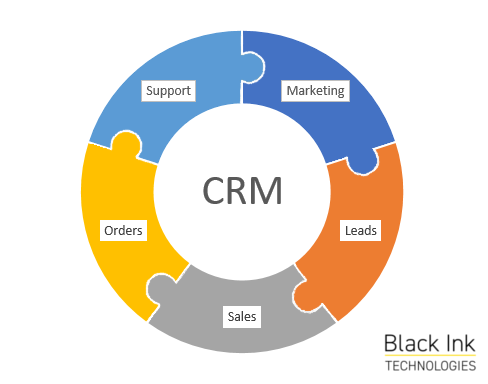Why Choosing The Right CRM Matters
by Ken Gibson
Picking which software to spend your company’s money on is a lot like picking which car to go with for your family. Whatever makes your family distinct will factor into the decision and make some options stand out. For example, say your sons are really into camping. That means you won’t be looking at any cars that can’t handle being off-road. The trick to picking the right car (or CRM) is knowing what makes your family (or company) different from all the rest and using that information to define your needs.
There is no shortage of options out there when it comes to business tools, least of all CRM software, and most if not all of them will handle your basic requirements. But as with any investment of your company’s time and money, reaching a decision too swiftly is never a good play. You may, for instance, decide that going with the cheapest option available makes sense, because they all seem to be ‘basically the same,’ but then later find out that the CRM software you chose doesn’t have some of the features you need. Or, your decision might be to invest in one of the more expensive options, gambling that its hefty price tag will guarantee your satisfaction, only to find out that you agreed to pay for features you’ll won’t ever need from a CRM software.

Another mistake you could potentially make is deciding to stick with what you got. If you have been using a CRM software for a long time and like it, that’s great, but you should definitely be asking whether or not that CRM software is going to become obsolete. The landscape (no pun intended) is shifting in regards to marketing and staying ahead of the curve means having the right tools. In a recent report on digital marketing and its impacts on manufacturing, the Manufacturers Alliance for Productivity and Innovation (MAPI) said that ‘the challenge with digital marketing is not being able to show ROI because of limited tie-ins to the CRM system.’ Sticking with an older CRM software may lead to issues down the road, where your company won’t be able to share information in the ways that it needs to.
You can avoid making the wrong choice by becoming educated on your company’s exact needs when it comes to CRM software, and also by learning the differences between the products that are on the market today. Some CRM is better for inventory management, some is better for building a dealer network - it is up to you to match your company’s need with a tool’s strengths. And of course, if a CRM software exists out there that was built from the ground up with your specific needs in mind, that most likely would be something worth checking out.
Source: Manufacturers Alliance for Productivity and Innovation (MAPI); INVENT TO SURVIVE: How digital marketing will drive manufacturers’ destiny.
